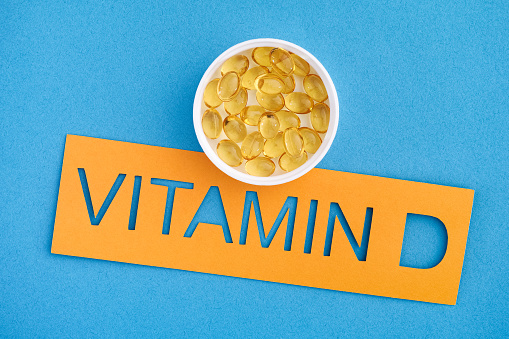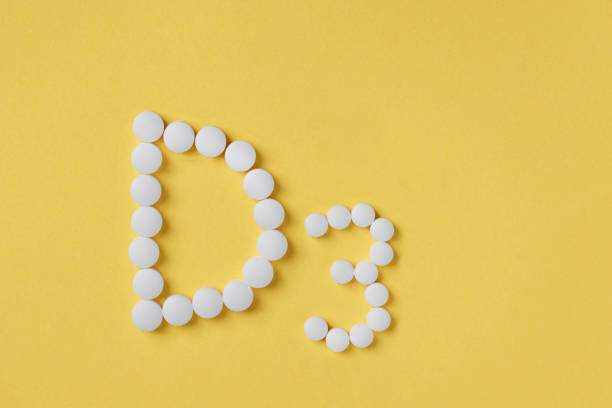To answer this question, we have to look at the Vitamin D serum levels in healthy individuals. The National Institutes of Health (NIH) and the US government have traditionally defined a Vitamin D serum level above 20 ng/mL as adequate for bone and overall health in adults. However, this information is severely dated and obsolete. Modern research has unveiled the critical role of Vitamin D in various aspects of our health, extending beyond bone health. In this comprehensive article, we will explore the profound impact of Vitamin D on cancer prevention, depression, type 2 diabetes, cardiovascular disease, weight loss, and multiple sclerosis. We will delve into the synthesis and activation of Vitamin D, the prevailing deficiency concerns, the limitations of current guidelines, and the safe dosage recommendations to optimize Vitamin D serum levels.
The Hormonal Role of Vitamin D
Vitamin D is not just a nutrient; it is a hormone with a vital function in our bodies. Our skin synthesizes Vitamin D when exposed to sunlight, and subsequent activation occurs in the liver and kidney. This activated form of Vitamin D acts as a hormone, playing a significant role in boosting our immune system and helping subdue various auto-immune disorders. To experience all the benefits associated with Vitamin D, our bodies need a minimum of 50 ng/mL of Vitamin D serum level.
Widespread Vitamin D Deficiency
Unfortunately, a substantial portion of adults in countries like the United States, United Kingdom, Canada, and even tropical regions like India have significantly lower levels of Vitamin D. This deficiency is unsurprising considering the sedentary lifestyles we lead today, spending most of our time indoors. Moreover, when we do venture outside, we are often advised to wear sunscreen to prevent skin cancer. While this is crucial for sun protection, it also blocks the UV-B radiation necessary for synthesizing Vitamin D.
Overcoming Deficiency with Vitamin D3 Supplements
Given the goal of maintaining a 50 ng/mL Vitamin D serum level, the most viable option is to supplement with vitamin D3. However, following the NIH and US government’s recommended dietary allowances of Vitamin D makes it impossible to reach and sustain the desired level. Their recommendation is a mere 600 IUs of Vitamin D daily, with a maximum limit of 4000 IUs. This excessively low dosage explains why half the population in the United States is deficient in Vitamin D.
Outdated Guidelines and the Expanded Role of Vitamin D
The problem lies in the fact that the recommended dietary allowances for Vitamin D were established a long time ago when it was believed to be solely responsible for calcium absorption. Modern research, however, has shed light on the multifaceted benefits of Vitamin D. Factors such as geographical location, skin color, age, weight, and various other individual considerations influence the required dosage. While some may require a higher dose, it is crucial to strike a balance before toxicity becomes a concern.

The Threshold of Toxicity
A Vitamin D serum level above 150 ng/mL is generally considered toxic. The Institute of Medicine suggests that doses below 10,000 IU/day are usually safe and not associated with toxicity. Thus, anything below 10,000 IU is generally considered a safe dosage. On the other hand, taking 50,000 IU or more per day for an extended period can lead to toxic side effects, including hypercalcemia, a condition of elevated calcium levels. Notably, not all cases with high serum levels greater than or equal to 150 ng/mL manifest in vitamin D toxicity. Research indicates that in a study conducted on 21 patients with serum levels over 150 ng/mL for a period of 2 years, 16 patients developed vitamin D toxicity, while 5 patients remained asymptomatic. Several other studies have also shown that patients with vitamin D serum levels ranging from 100 to 150 ng/mL did not always experience hypercalcemia.
Striking the Right Balance
The bottom line is that Vitamin D toxicity is rare and occurs primarily when extremely high doses of 50,000 IUs or more of vitamin D3 supplements are taken daily. Fortunately, most individuals do not require such a high dosage. As an example, I personally maintain a healthy serum level of 50 ng/mL by taking 7000 IUs of Vitamin D3 supplements daily. It’s important to note that there is no one-size-fits-all solution when it comes to Vitamin D supplementation. To identify the correct dosage for you, it is recommended to get your vitamin D level tested and consult with your doctor.
Conclusion:
In conclusion, Vitamin D plays a crucial role in our overall health and well-being. It is not only essential for maintaining healthy bones but also for preventing cancer, managing depression, controlling type 2 diabetes, reducing the risk of cardiovascular disease, aiding in weight loss, and managing multiple sclerosis. The outdated guidelines provided by the NIH and US government fail to address the comprehensive benefits of Vitamin D, leading to widespread deficiencies in the population.
Supplementing with vitamin D3 becomes necessary to maintain optimal serum levels, especially since natural synthesis through sun exposure is hindered by modern lifestyles and sun protection measures. While a serum level above 20 ng/mL may be deemed adequate by traditional standards, research suggests that a minimum of 50 ng/mL is required to experience the full range of benefits.
It is important to strike a balance with supplementation, as excessively high doses can lead to toxicity. However, doses below 10,000 IU/day are generally considered safe, while doses exceeding 50,000 IU/day over an extended period can result in documented side effects. Each individual’s dosage requirement may vary based on factors such as geographical location, skin color, age, weight, and other personal considerations.
FAQs (Frequently Asked Questions)

- How can I increase my Vitamin D levels naturally?
You can increase your Vitamin D levels naturally by spending time in the sun without sunscreen, particularly during the hours when UV-B radiation is highest. However, it’s important to strike a balance and protect your skin from excessive sun exposure to prevent the risk of skin cancer. - Can I get enough Vitamin D through diet alone?
While some foods contain small amounts of Vitamin D, it’s difficult to obtain sufficient levels through diet alone. Foods such as fatty fish, fortified dairy products, and egg yolks can contribute to your Vitamin D intake, but supplementation or sun exposure is often necessary to maintain optimal levels. - Are there any symptoms of Vitamin D deficiency?
Common symptoms of Vitamin D deficiency include fatigue, muscle weakness, bone pain, frequent infections, and low mood. However, these symptoms can be indicative of various other health conditions as well, so it’s important to consult with a healthcare professional for an accurate diagnosis. - Can I take Vitamin D supplements without consulting a doctor?
While Vitamin D supplements are generally considered safe, it is advisable to consult with a healthcare professional before starting any supplementation regimen. They can assess your individual needs, conduct tests if necessary, and recommend the appropriate dosage based on your specific health circumstances. - Are there any potential drug interactions with Vitamin D supplements?
Certain medications, such as corticosteroids, cholesterol-lowering drugs, and anti-seizure medications, may interact with Vitamin D supplements. It is crucial to inform your healthcare provider about all the medications you are taking to ensure there are no adverse interactions. - Can Vitamin D supplements replace sunlight exposure?
Vitamin D supplements can help compensate for inadequate sunlight exposure, especially in regions with limited sunlight or during the winter months. However, moderate sun exposure remains beneficial for overall health, as it provides additional benefits beyond just Vitamin D synthesis. - Can I overdose on Vitamin D from sunlight exposure?
It is unlikely to overdose on Vitamin D from sunlight exposure alone. The body has a natural regulatory mechanism that limits the synthesis of Vitamin D from sunlight. However, it’s still important to practice sun safety and avoid excessive sun exposure to protect against skin damage and the risk of skin cancer. - Can Vitamin D supplements improve mood disorders?
Vitamin D deficiency has been associated with an increased risk of mood disorders such as depression. While supplementation may be beneficial for individuals with low levels, it is not a substitute for professional mental health care. If you are experiencing mood disorders, it is essential to seek guidance from a qualified healthcare provider. - Can I take Vitamin D supplements during pregnancy?
Prenatal Vitamin D supplementation is often recommended to ensure adequate levels for both the mother and the developing fetus. However, the dosage should be determined by a healthcare provider based on individual needs and considerations. - Can Vitamin D supplements prevent or treat cancer?
While Vitamin D plays a role in cancer prevention and management, it is not a substitute for proper medical treatment. Vitamin D supplements should be seen as a complementary approach alongside standard cancer therapies, and it’s important to consult with an oncologist for personalized advice.
